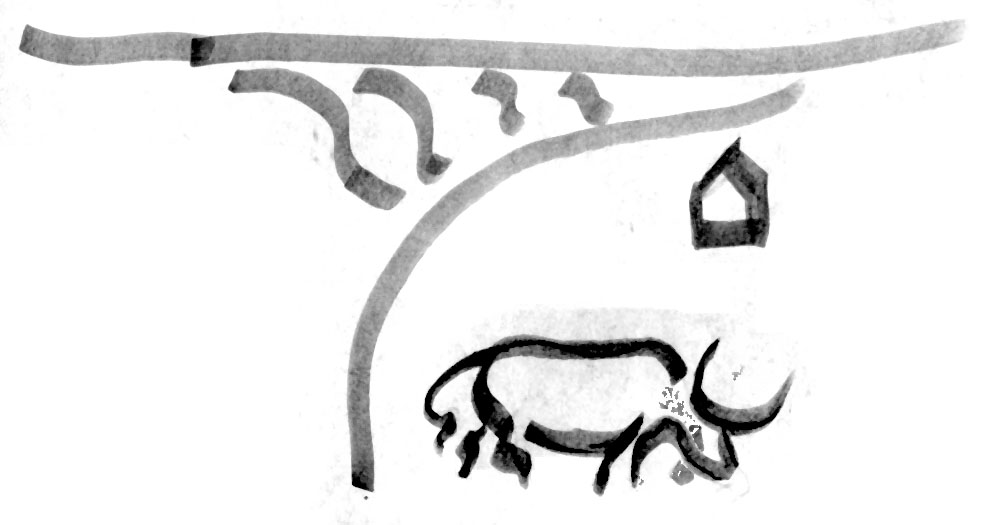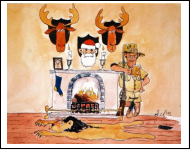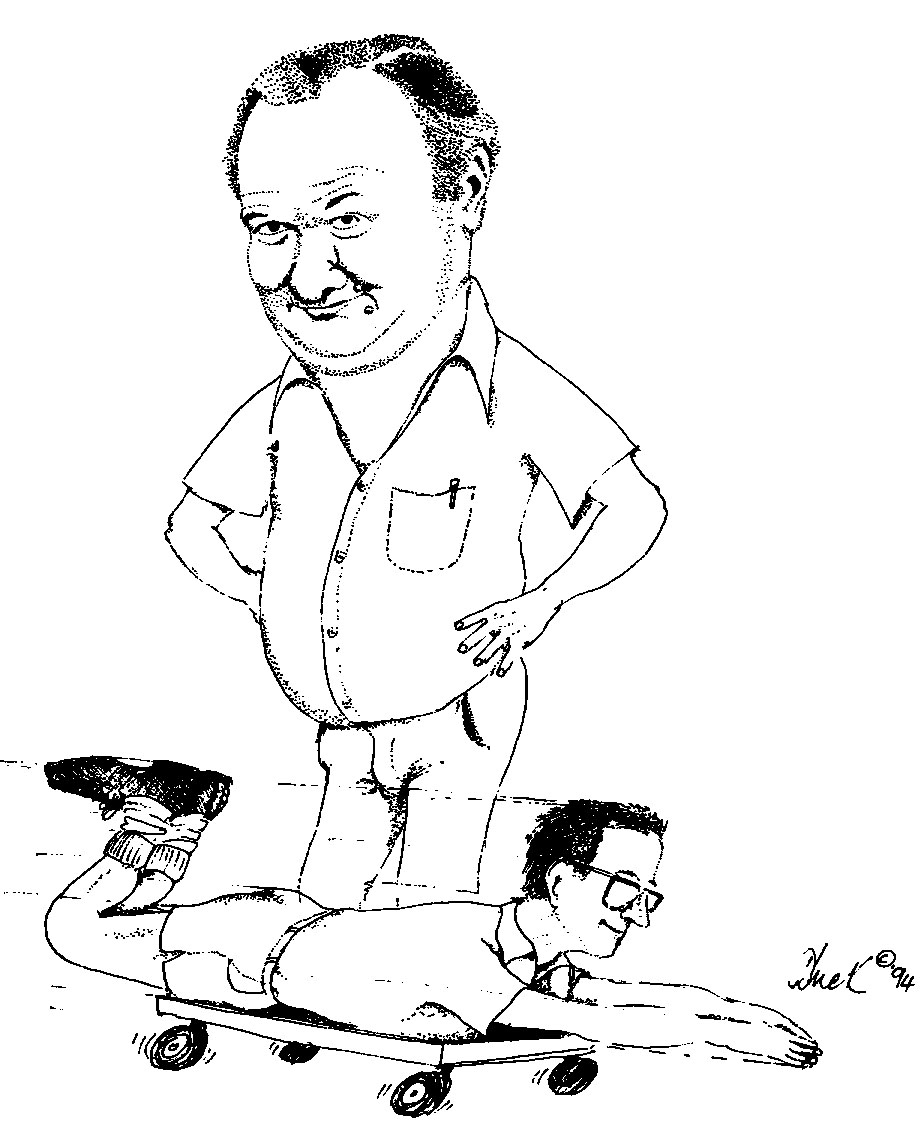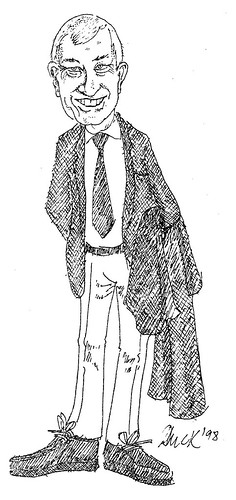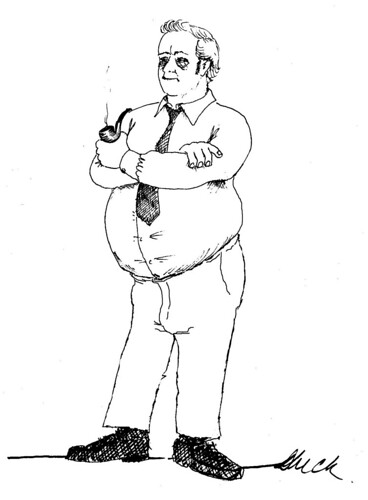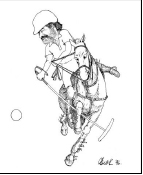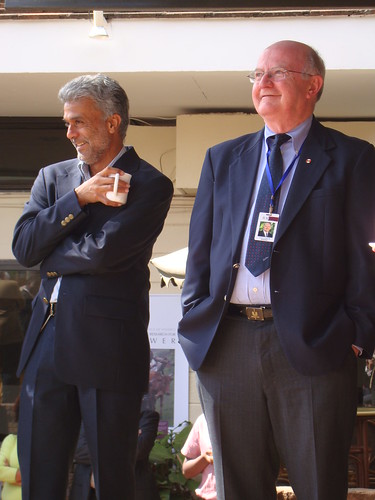Declan McKeever,a former scientist at the International Livestock Research Institute (ILRI), and its predecessor, the International Laboratory for Research on Animal Diseases (ILRAD), brilliant immunologist, great friend, Irish wit and agent provocateur for all things unashamedly intelligent, has died.
ILRI staff last saw Declan end of last November, when he came to the ILRI Christmas party in Nairobi, where he was looking good, telling old and new stories, many about his sickness and his ongoing recovery, and things and people and insights that had moved him in his battle against cancer. His focus at that Christmas party was on other people’s trials, old friends, things that matter. He was tender as well as smart. His heart was open, his wit still dry.
He was looking forward to coming out to ILRI and Kenya again this weekend, to participate in a newly formed consortium to beat back an old foe of his and ILRI’s and ILRAD’s, East Coast fever, a cattle killing disease devastating the livelihoods of the poor in Africa.
He will be badly missed. We will not be the same without him.
An age-mate of his, Brian Perry, another illustrious former ILRAD/ILRI scientist, has written the following personal tribute.
‘We learnt with immense sadness that Declan McKeever died last night [23 Jan 2014]. He was diagnosed with myeloma in December 2012, underwent chemotherapy followed by an autologous stem cell graft in April 2013, had been recovering well, and was back at work full time later in the year. We send our sincerest condolences to his widow Christine, to Luke and Saoirse, and to Aoife and Leo.
‘Declan has been the closest of friends and confidants for the last 27 years, and I will miss him immensely. In the vibrant days of the International Laboratory for Research on Animal Diseases (ILRAD), Declan epitomised the dedication to scientific discovery and innovation which consumed the institute at the time, in the search for an understanding of the immune responses to Theileria parva, and how these could be captured and deployed in disease prevention through vaccines. In its mission to tackle two of the most intractable and complicated African livestock diseases, ILRAD bred and nurtured many scientists and thinkers, almost all of whom had different views and approaches to tackling vaccine development, in a funding environment impatient for results, a scenario captured in the Science article of April 1992 entitled ‘Nairobi laboratory fights more than disease’.
‘Declan rose to the occasion, thriving on scientific debate, and complementing his acute intelligence with a subtle, penetrating, wit that epitomised his multiple contributions. ILRAD became ILRI in 1995, and Declan left ILRI in 1999 after 13 years with the CGIAR, taking a chair in Veterinary Clinical Sciences at Edinburgh University, and joining a cluster of former ILRAD scientists continuing on their search for a vaccine against East Coast fever, this time in colder climes. Having separated from wife Mary Lou, he remarried former ILRI scientist Christine Thuranira, and in 2007 they moved on to positions at the Royal Veterinary College (RVC), University of London. Declan was Chair of Immunoparasitology, and Head of the Pathology and Infectious Diseases department, and had recently been appointed Vice Principal of RVC. A sudden and untimely end to a successful career. . . .
‘Declan was also an artist, well known for his cartoons of various staff members during the ILRAD days, and for his Christmas cards; while he lived in Kenya he donated the humorous artwork in the Christmas cards to various charities every year. There are some classics, such as the one on the left!
‘From the cartoons, perhaps my favourite is that of the ILRAD Director General, Ross Gray, taking one of his unannounced trips to the labs in 1994 and encountering Jed Lamb skateboarding towards him (below left)!
He also drew a cartoon of Nobel Prize winner Peter Doherty (below centre)
and one of ILRAD director of research Jack Doyle
and one for my 50th birthday present (below right), which hangs with pride in our house.
‘Despite the impression on occasions of being quite irreligious, Declan had a strong belief, and a committed faith, which he drew on regularly. He was a devoted family man, exuding pride in his elder children, and taking on with ease the new roles and responsibilities of a father with young Luke and Saoirse. The reunion of all his children over Christmas 2012 gave him immense joy. . . .
‘When Declan became ill, he called me on skype to tell me of his condition. My wife Helena wrote to him and thanked him for letting us know. He replied: “Helena I was very touched by your message – it really brought home to me how important old friendships are. Niall MacHugh told me that I should tell my old friends because they will have something to contribute, and he was so right”.’
Brian Perry, Gilgil, Kenya, 23 Jan 2014
All drawings by Declan McKeever.

